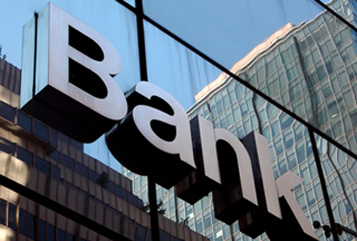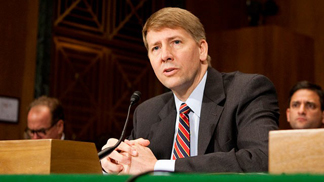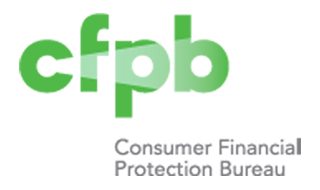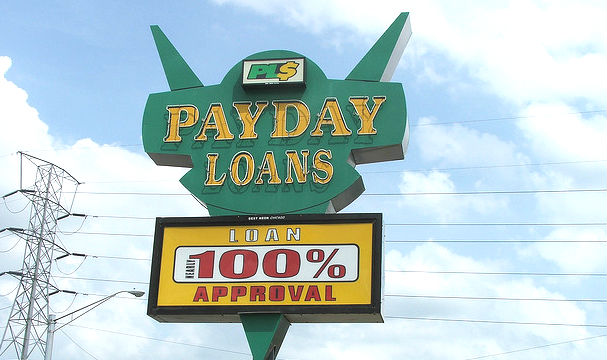Tag Archives: Predatory Lending
Online Payday Lenders Could Be Worse Than Traditional Payday Lenders
by Ashlee Kieler, Consumerist

Half of online payday loan borrowers incur an average of $185 in bank penalties because at least one debit attempt by lenders creates an overdraft or fails completely. … In addition to simply extracting money from borrowers’ accounts when payments are due, [the online system] allows lenders to attempt multiple debit transactions against borrowers’ accounts when the first attempt fails. Nearly 18% of borrowers experience multiple failed requests on the same day from the same lender. For an already financially strapped borrower, this can lead to hundreds of dollars’ worth of overdraft fees. Read More ›
Corinthian Colleges Students Unlikely To See $1.2 Billion Judgment
by Roxana Kopetman and Mark Muckenfuss, Orange County Register

Experts said recovery of the judgment is unlikely. And some students and their advocates said they haven’t yet gotten what they really need: release from school-loan debts. In California, 13,000 students were attending Corinthian schools when the doors shut. … The bankrupt Corinthian closed its for-profit schools last year amid accusations that the chain falsified grades, attendance and job-placement rates. Students complained of deceitful practices that often targeted low-income students by promising a lot but offering very little. Read More ›
Overdraft Practices Continue To Gut Bank Accounts And Haunt Customers
by Michael Corkery and Jessica Silver-Greenberg, New York Times

The nation’s big consumer banks collected about $11 billion in overdraft fees last year, which accounted for 8 percent of their profits, according to a report by the Consumer Financial Protection Bureau. … Many customers end up confused by how overdrafts work. In their marketing materials, for example, banks present the choice of whether to sign up for overdraft as an offer of “overdraft protection” — a feature many customers thought would automatically deny transactions and shield them from incurring the fees at all. In reality, it is a service authorizing the banks to charge the overdraft fees. Read More ›
Consumer Laws Taking Effect In 2016

The following consumer-related legislation was signed into law in 2015 and will take effect January 1, 2016, except as noted. Read More ›
Beware The Fine Print: Arbitration Everywhere, Stacking The Deck Of Justice
by Jessica Silver-Greenberg and Robert Gebeloff, The New York Times

The move to block class actions was engineered by a Wall Street-led coalition of credit card companies and retailers, according to interviews with coalition members and court records. Strategizing from law offices on Park Avenue and in Washington, members of the group came up with a plan to insulate themselves from the costly lawsuits. Their work culminated in two Supreme Court rulings, in 2011 and 2013, that enshrined the use of class-action bans in contracts. The decisions … upended decades of jurisprudence. Read More ›
CFPB May Let You Sue Your Bank Instead Of Going To Arbitration

“Consumers should not be asked to sign away their legal rights when they open a bank account or credit card,” CFPB Director Richard Cordray said. “Companies are using the arbitration clause as a free pass to sidestep the courts … ” In a first step toward potential new rules, the CFPB is publishing an outline of proposals under consideration in preparation for forming a small business review panel to gather feedback from industry stakeholders. … [New rules would apply to] credit cards, checking and deposit accounts, prepaid cards, money transfer services and several types of loans. Read More ›
CFPB To Consider Rules That Would Revoke Banks’ “License To Steal”
by Chris Morran, Consumerist

Earlier this year, the Bureau released its first report on arbitration in the financial products sector. It found that while the clauses are incredibly prevalent — 92% of prepaid debit cards and 88% of cellphone contracts use them — most consumers are completely unaware if they are affected. According to the CFPB, of those Americans constrained by arbitration agreements, fewer than 7% understood that this meant they had given up their right to file a lawsuit. “Consumers should not be asked to sign away their legal rights when they open a bank account or credit card,” said CFPB Director Richard Cordray in statement. Read More ›
L.A.-Based Auto Lender Must Pay $48M In Fines, Refunds For Illegal Collections
by Ashlee Kieler, Consumerist

Westlake Services, which specializes in purchasing and servicing auto loans, including many subprime and near-subprime loans, purchased loans from auto dealers nationwide. Wilshire Consumer Credit, a wholly owned subsidiary of Westlake, offers auto title loans directly to consumers, largely via the Internet, and services those loans. … In addition to deceiving consumers with illegal debt collection practices, the CFPB found Westlake and Wilshire violated consumer financial protection laws with advertising, customer relations and account servicing. Read More ›
Oakland Sues Wells Fargo For Predatory Lending Against City’s Black, Hispanic Residents
by Mike Blasky, Oakland Tribune

City Attorney Barbara Parker said the bank targeted minority borrowers — including churches — for predatory mortgage loans in violation of the Fair Housing Act and California’s Fair Employment and Housing Act. … Parker on Tuesday said no bankers were held personally responsible for the foreclosure crisis, which in part forced Oakland to lay off 80 Oakland officers in 2010 and make drastic cuts to other departments. Read More ›
For-Profit Colleges Lead The Way On Loan Defaults: Report
by Ashlee Kieler, Consumerist

The current student loan debt crisis is largely concentrated among nontraditional borrowers who attended for-profit schools and other non-selective institutions. … For-profit college students represent a relatively small fraction of consumers seeking higher education – just 11% – but they represent about 44% of all federal student loan defaults. The authors say these rates lead them to believe it’s ultimately the quality of education at these schools that drive students to default, as they aren’t prepared to find employment that would allow them to pay their loans. Read More ›
Garnishing California’s Future: New Bill Seeks To Curb Wage Seizures
by Bill Raden, Capital & Main

Unable to keep up payments, loans fall into default and too often result in crippling court-ordered garnishments that claim up to a quarter of earnings. … “People’s lives are being ruined by these very high, 25 percent garnishments – the national maximum – being taken out of their check before they get it home,” [one expert said]. … [SB 501 would] eliminate the current law’s penalty against garnished workers who might want to work more than 40 hours a week. As the law stands now, every additional dollar above $360 a week is taken by the creditor. Read More ›
Consumer Groups Urge CFPB To Provide Better Oversight, Rules Over Student Loan Servicing
by Ashlee Kieler, Consumerist

A 2013 report from Consumers Union included anecdotal claims of servicer incompetence, like the borrower who was being charged more than twice the interest rate he was supposed to pay. More recently, the CFPB found that some student loan servicers took part in several illegal and shady practices. … Student loan servicing stands today where mortgage servicing stood over a decade ago: critically important and largely ignored. Read More ›
Abusive Lending Practices Can Lead To Negative Long-Term Consequences For Borrowers, Communities
by Ashlee Kieler, Consumerist

If a borrower has one abusive loan, they may be more likely to struggle with their other debts. This can lead to stressed household finances, more subprime borrowing, and even default. Those stresses then have a way of trickling into other aspects of a consumer’s life, and even their community. Read More ›